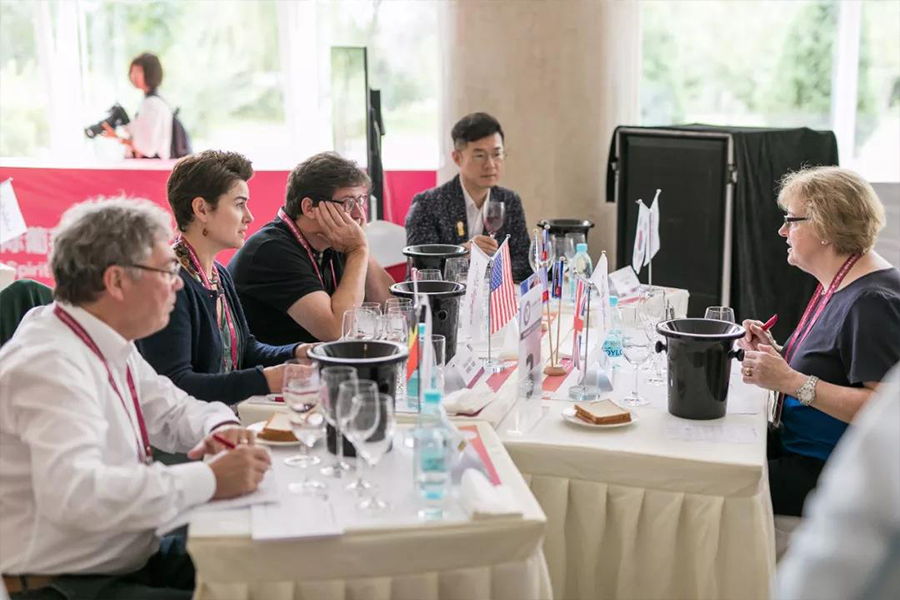
独家专访 | 葡萄酒大赛即将开幕,你想了解的大师都在这里!
距离2018“一带一路”(宁夏·银川)国际葡萄酒大赛开幕还有8天,在大赛正式开始之前,赛事组委会特别对即将抵达宁夏的几位大师进行了独家专访,基于中国葡萄酒产业的发展现状、市场机会与挑战,挖掘大师视角下对于葡萄酒产区规划、酒庄旅游发展、生物动力法,和餐酒搭配等多个话题的见解。以下为专访内容的中英文完整版,供热爱葡萄酒的朋友们欣赏。
BRWSC国际葡萄酒大赛
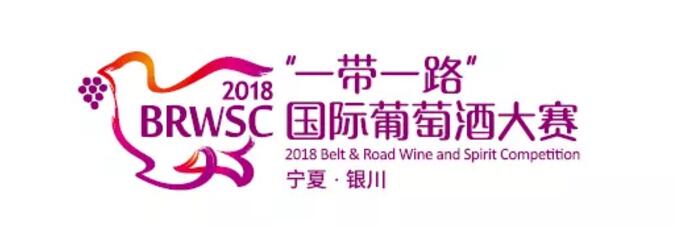
距离2018“一带一路”(宁夏·银川)国际葡萄酒大赛开幕还有8天,在大赛正式开始之前,赛事组委会特别对即将抵达宁夏的几位大师进行了独家专访,基于中国葡萄酒产业的发展现状、市场机会与挑战,挖掘大师视角下对于葡萄酒产区规划、酒庄旅游发展、生物动力法,和餐酒搭配等多个话题的见解。以下为专访内容的中英文完整版,供热爱葡萄酒的朋友们欣赏。
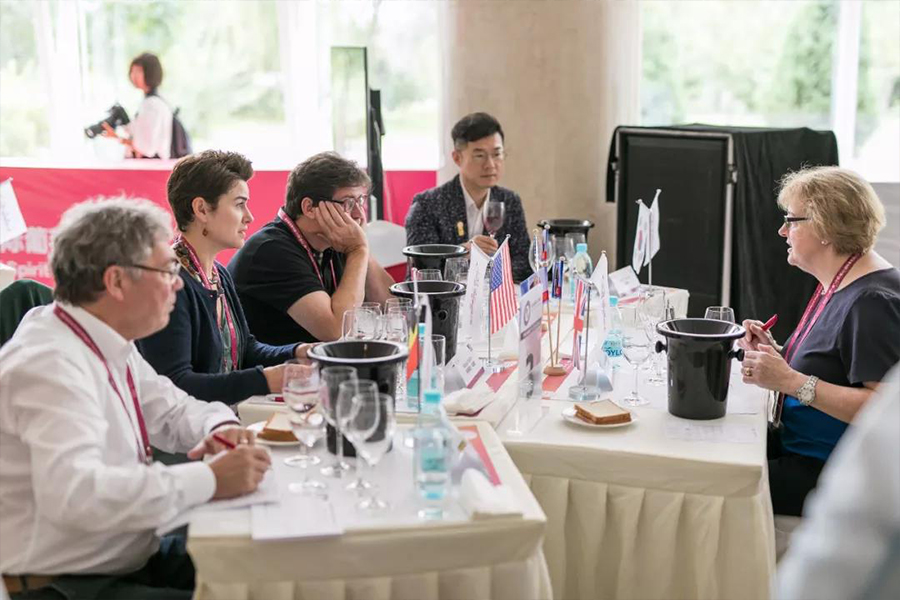
西班牙
>>>彼得鲁•陶乐斯 <<<
Pedro Ballesteros Torres MW
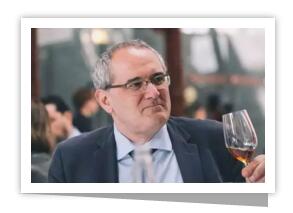
葡萄酒大师(西班牙历史上第二位大师)
一带一路国际葡萄酒大赛国际主席
国际葡萄酒大赛论坛嘉宾
采访者:BRWSC
葡萄酒大师:PB Torres(Pedro Ballesteros Torres)
BRWSC:Being an authority on the Spanish wine industry, do you see any similarities or differences between Spain, one of the most important wine-producing countries and certainly the largest grape growing country in the world, and China, a nascent but fast developing “New World” of wines?
作为西班牙葡萄酒和产区的权威,您认为西班牙和中国就葡萄酒产业方面存在着哪些不同和相同呢?
PB Torres: I see many similarities and as many differences as well. What is most similar is the quest, both in China and in Spain, for high quality wines that represent their respective landscapes, peoples and history. The differences are then huge: different climates, different soils, different market approaches and structures, different governances….But the main similarity is much more relevant than any difference: indeed, what is common to all real wine lovers is the active defence of diversity.
很多的相同和不同并存。但两个国家最为相似的一点就是对于能够展现当地风土、人情和历史的品质葡萄酒的不断追求。当然不同之处也很多:不同的气候环境、不同的种植土壤、不同的市场策略和格局、不同的政府管理等等。但我认为相同之处总是比不同之处更重要:事实上,对于所有真正热爱葡萄酒的人来说,持续拥抱和捍卫多样性才是大家恒古不变的“殊途同归”。
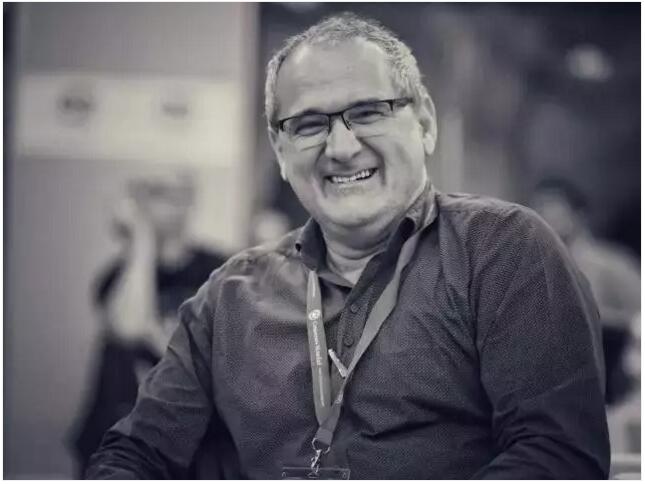
BRWSC:Can you please identify some of the areas that Chinese wineries and the industry in general need to improve on? (such as selection on grape varieties, wine promotion and marketing, wine education and etc.)
您是否能够讨论一些目前中国酒庄和葡萄酒产业整体需要提升的地方?(比如对于种植葡萄品种的选择、市场营销策略、葡萄酒教育等)
PB Torres:Grape varieties is definitely a key point for China. I think that China needs a relevant effort to research existing and new grape varieties that are really adapted to Chinese climates. Only by having the adequate genetic material, which by definition cannot be French or international, would China get in the league of top fine wine countries.
Education is also an important point, but I’m quite sceptic on following Western education models only. China needs to define and develop their own wine culture, provided it is a real culture. Wine can be enjoyed in a myriad ways, many more than those pursued by the western world.
葡萄品种的选择对于中国的葡萄酒产业尤为重要。我认为中国需要投入更多的努力去研究目前已有和新的葡萄品种,从而辨别出真正适合中国气候和环境的品种。只有当中国拥有足够强大的本土培育的葡萄品种,从定义上来讲是非法国和国际葡萄品种的时候,中国才能真正成长为立足于世界的品质葡萄酒强国。
同时,葡萄酒教育也非常重要,但我对于仅仅沿袭西方的教育模式心存怀疑。中国需要结合国情定义和发展出自己特有的葡萄酒文化(前提为它是真正意义上文化)。其实享受葡萄酒的方式有很多种,完全不用拘泥于那些已经被西方世界习以为常的方式。
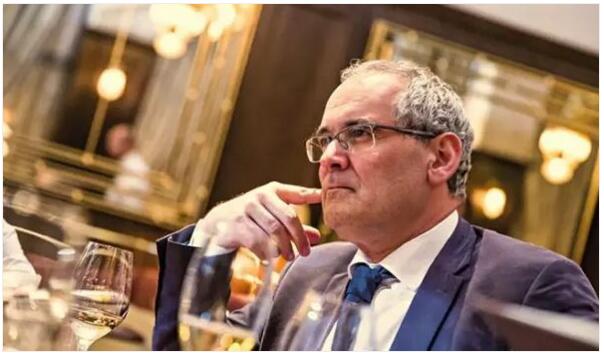
BRWSC: Many “New World” wine countries such as Australia and America versus “Old World” wine countries such as France have rather different appellation of origin systems. When Burgundy is famously known for its countless climats, American wine regions are conveniently indicated by both political as well as geographical boundaries via AVAs. Why do you think there are such differences and how this may affect regional performances in markets?
很多新世界的葡萄酒国家,比如澳大利亚和美国相较于旧世界比如法国有着非常不同的葡萄酒原产地命名系统。当勃艮第因其浩如繁星的风土而举世闻名,美国法定种植区(AVAs)的分级制度也被消费者欣然接受。您认为对于葡萄酒不同分级制度的原因是什么?不同的分级体系对于市场又有着怎样的影响呢?
PB Torres:Differences between New World and Old World indications of origin are due to political and historical reasons, not to genuine quality factors. It is up to each country to apply their own strategies, provided they respect the others’ and they do not allow fraud. Then it is up to customers to reward one or the other system. Having said this, I think it is definitely superior to protect the names of origin in all countries; this is something genuinely associated to territories. As soon as a country get decent wines, they get interested in protecting their names. Only those with mediocre quality use fake names. The New World got intensely active in creating indications of origin as soon as they get some quality in their wines. This is the tendency also in China, where Ningxia and other prestigious names are fiercely protected now.
我认为存在于各个国家的不同分级体系主要来源于历史和政治原因,而非葡萄酒品质的不同。不同的国家有权利规划和制定符合本国情况的分级制度,前提是基于对其他分级制度的尊重和对冒牌产品的零容忍。接下来就看消费者是否接受和肯定这样的分级体系了。说到这,我必须强调对于原产地命名保护的重要性,这一点对于每个国家都一样;这个概念与领地的概念密不可分。当一个国家开始生产真正品质上乘的葡萄酒时,她对于产地的保护意识才会随之增加。只有出产品质平平葡萄酒的地方才会对仿冒他人的品牌和名字感兴趣。正是因为新世界的崛起,他们才开始看重对于原产地命名的保护。这一现象在中国也在发生,比如以宁夏为代表的优质产区。
英国
>>>莎拉•简•伊万 <<<
Sarah Jane Evans MW

葡萄酒大师
《品醇客》世界葡萄酒大奖赛联合主席
一带一路国际葡萄酒大赛评委
国际葡萄酒大赛论坛嘉宾
采访者:BRWSC
葡萄酒大师:SJ Evans (Sarah Jane Evans)
BRWSC:Wines and tourism in many regions are inseparable, places such as La Rioja, Napa and Barrosa Valley are not only known as successful wine producing regions but also regarded as must-visit destinations for wine aficionados and regular tourists alike. However, wine tourism still needs much development in China due to multiple reasons such as lacking of collaborations among wineries. What are your advices on promoting wine culture and regional economy through wine tourism in China?
在很多地方,葡萄酒和旅游密不可分:比如西班牙的里奥哈、美国加州的纳帕谷、澳大利亚的巴罗萨谷等地不仅被认为是世界闻名的葡萄酒产区,更是普罗大众心驰向往的旅游胜地。不过在中国,由于种种原因酒庄游仍然存在很大的发展空间。您对于中国发展酒庄旅游,从而培养葡萄酒文化的传播和当地的经济发展有着怎样的观点和建议?
SJ Evans:I speak from my experience of wine tourism in Europe, and in north and south America, New Zealand, Australia and South Africa. Wine tourism at its best can obviously make a very positive contribution to the winery, but also to the local economy. Visitors will be encouraged to visit the region, and they will have a reason to spend longer there. Each winery needs to develop its own offer and to tell a different story.
One winery may have a very good programme for children, another may offer food and wine matching at its restaurant, another may have a strong commitment to education about vine growing and wine making, yet another may become known for musical events. Thus, by working together in a single regional promotion, the different wineries make a very attractive, diverse offer to visitors and can teach them about the safe and sensible enjoyment of wine. Local tourism needs to be involved to ensure that there are adequate hotels and places to stay. Wineries are one part of a regional tourism package that may include leisure activities in the countryside, or visiting historical sites. In a number of countries ‘Wine Routes’ linking local wineries have proved successful, and can be used in international marketing.
Finally, every winery must be committed to a programme that educates visitors about drinking alcohol in moderation, and the safe consumption of alcohol.
根据我在欧洲、北美、南美、新西兰、澳大利亚和南非的经历,来简单说说酒庄旅游这件事。组织得当的酒庄游确实会为酒庄和当地经济发展带来非常积极的影响。游客会有更多的理由来到当地参观,并且会停留更久的时间。不过,每一个酒庄都应该找到自身的差异性,讲述出与众不同的故事。比如:其中一个酒庄可以重点做亲子游、另一个酒庄可以通过餐饮服务发展自己的优势,有的酒庄则可以提供系统专业的葡萄酒知识培训,而其他酒庄或许可以将自己打造为举办音乐节的黄金胜地。这样一来,不同的酒庄通过整体产区的宣传,形成合力,为消费者带来各具特色的产品和服务,同时传播健康饮酒的生活理念。当地的旅游局需要确保酒庄游的配套设施,保证周边餐饮和住宿的良性发展。反之,酒庄游也可以反哺本地旅游,成为本地旅游中除了风景游览、古迹参观之外的又一大旅游特色。在很多国家,连接产区沿线酒庄的“葡萄酒线路”(“Wine Routes”)模式非常成功,也便于国际市场的集体品牌发声。
最后,我认为所有的酒庄都有引导消费者健康、理性饮酒的责任和义务。
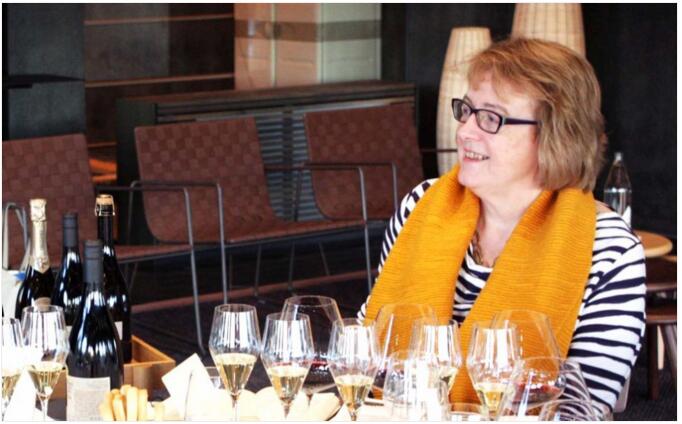
BRWSC:Many wineries are producing biodynamic wines and some question if biodymically growing grapes and wines thereafter are better reflections of terroir. What is your opinion on this phenomenon and do you think this value will be adopted by winegrowers in China ?
生物动力法已经被很多酒庄所沿袭,但大家对于经由生动法种植的葡萄是否能更好地展现当地风土这一问题充满好奇。您对这个问题的看法是怎样的,生动法的观点和价值又是否会在中国得以发扬光大呢?
SJ Evans:Biodynamicsis the practice of working introduced by Rudolf Steiner. Whether it reflects the terroir better is debated, and there are many who are very strongly in favour. Whatis certain is that a producer working with biodynamics, or growing grapes organically, has to pay a great deal of attention to the vineyard.
Rather than simply applying chemical treatments to the vine according to a calendar, this way of working requires the producer to be more focused on the health of the individual plant. It does not work in every environment. It’sparticularly difficult in places of high humidity and high rainfall, for instance.
Every producer needs to think about the health of the people working in the vineyard. A biodynamically managed vineyard may be better for the health of the vineyard workers. Furthermore, it’s important for producers to look ahead. As consumers become more interested in their health, and the environment, and sustainability, then there may be an increasing demand for winesfrom biodynamically or organically grown grapes.Producers who are working this way already will have an advantage.
生物动力法是由奥地利社会哲学家鲁道夫·施泰纳首次提出的一种工作方法,但是否生动法与风土的直接展现有着直接的联系目前并没有一个公认的定论,很多人目前都非常支持这一理念。但有一点可以肯定的是,采用生物动力法和有机种植方法的酒庄都需要对葡萄园付之更多的关注和心血。与其简单对应天气来喷洒化学制剂,生动法要求生产者必须对每一株葡萄藤的健康都格外上心。当然,生动法并不适用于所有气候,尤其是在湿度大、多雨的产区。
每一个生产者都应该关心在葡萄园中工作人员的健康, 生动法或许比普通的种植方法更好的保证这一点。此外,生产者是否能够高瞻远瞩也尤为重要:伴随着越来越多消费者对于个人健康、环境、可持续性发展的关注,由生动法制造的葡萄酒会迎来更高的市场需求,坚持生动法种植和酿造的生产者已经因此占据了一个良好的行业优势。
BRWSC:Some believe that the current grape varieties being grown in China are highly homogeneous and lack diversity. In your opinion, are there any lesser-known grape varieties which you believe might perform well in China, particularly in the areas of Ningxia and Shandong regions?
一些人认为目前在中国种植的酿酒葡萄品种同质化比较严重,缺乏多样性。以您的观点来看,有哪些不那么“国际化”的葡萄品种其实是比较适合种植在中国的吗? 尤其是在中国的宁夏和山东产区。
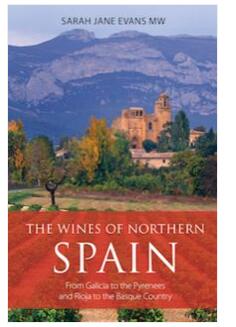
莎拉女士最新著作 《The Wines of Northern Spain》
SJ Evans:I am not yet familiar with the soils and climate, the terroir, of Ningxia and Shandong so cannot comment on this. What I would say is that these regions should focus on producing the best wines they can from their soils. This will inevitably involve continued experimentation over time. There is no requirement to use famous international varieties. The best wines may come from something lesser-known that is better adapted to the environment. It will be an opportunity for Ningxia and Shandong to show that they have something different to offer.
我对宁夏和山东产区的土壤环境、气候和风土还有待了解,所以并不具备评论这个问题的条件。但我想肯定的是,这些产区都应该结合自己的环境条件种植最适宜的葡萄品种,而这需要持续的时间去试验与探索。种植国际品种并不是必要条件,最好的葡萄酒来自最适合当地风土的葡萄品种,即便品种本身可能很小众。宁夏和山东应该抓住这个机会向世界展现自己与众不同的一面。
葡萄牙
>>>约奥•皮雷斯 <<<
Joao Piers MS

侍酒大师
一带一路国际葡萄酒大赛评委
国际葡萄酒大赛论坛嘉宾
采访者:BRWSC
侍酒大师:JP (Joao Piers)
BRWSC:Food and wine pairing is a relatively new concept to most of Chinese wine consumers, some believe that it is partially because of a plethora of Chinese food types and tastes being often shared among dinner tables, which makes it impossible to find a “one fits all” solution. What are your suggestions to restaurantuers, sommeliers, and wine trade professionals on wine pairing for Chinese cuisines?
餐食搭配在中国还是一个相对来说比较新的概念,一些人认为这是因为中国菜肴中的一顿饭包含了很多种不同的菜式和口味,很难找到一款可以驾驭所有佳肴美味的葡萄酒来搭配。那么作为一名经验丰富的侍酒大师,您对于在中国工作的餐厅从业人员、侍酒师、葡萄酒行业从业者又有着哪些建议呢?
JP:The first thing that comes to my mind is, does Chinese food needs wine or does Chinese food can anyhow be susceptible to be paired with wine? There is no such thing as a “one fits all” recipe as there is no such thing as Chinese food. There are various cuisines such as Cantonese, Sichuan, Jiangsu, Hunan, Shandong and many others. Most importantly the Chinese approach to the preparation and serving of food is very different from what Westerners are familiar with. For instance, the approach of sharing a concept that I love, as an example being the main course, where several different dishes are all served at once, with everyone helping themselves from the same dish makes food pairing quite a challenge to say the least.
A Chinese regular guest of mine once explained me that he likes to start with the most complex perhaps more expensive wine in the beginning of a meal allocating the less interesting ones to be poured in the end. This is truly the opposite in our Western culture but his argument support makes a lot of sense as he added that drinking the best wines in the end of the meal when you are possibly already drunk it’s not worth the investment. I have organized various wine dinners in our Chinese Michelin starred restaurants at Melco with authentic Chinese food but of course being served course by course and playing and managing various elements such as spice, sweet and sour and oily tastes as well as the richness and complexity of sauces.
A real challenge are desserts because Chinese normally prefer fresh fruit. When they do indulge in something special, instead of being loaded with sugar, the desserts are frequently filled with sweet and savory ingredients, from taro to sweet red bean paste. Our mindset needs to be reset to be able to understand why sweet wines sales are not quite successful in this part of the world. Even in our western world of sugar I tend to avoid sweet wines with very sweet desserts as it will taste so boring, so nauseating, so disgusting. Instead the key here is acidity to be involved, not only for the wine pairing balance but for the absolutely need of lift and cleansing of your palate.
首先在我脑海中浮现的第一个问题是:中餐需要葡萄酒吗?或者说中餐适合搭配葡萄酒吗?在真实的情况中确实没有任何一款葡萄酒能够驾驭一切中餐,或者说,“中餐”(Chinese Cuisines)的概念其实根本就是不存在的——我得意思是在中国,我们可以品尝到广东菜、四川菜、江苏菜、湖南菜、山东菜和各式各样地具有着当地风土人情的特色菜肴。更重要的是,中国菜肴特有的烹饪和餐桌礼仪是与西方文化有着很大差异的。比如说,中餐中关于“分享”和“围坐”的饮食文化,大家共同取食同一份菜肴,这些都让传统意义上的“餐酒搭配”颇具挑战。
一位我非常相熟的中国客人曾经告诉我,他一般都习惯将更复杂(同时也可能是价格更高)的酒在开餐的一开始饮用,而将没那么有趣的酒留在最后。这个理论和西方的餐酒搭配概念正好相反,但他接下来的解释让我认为这个做法很有道理:食过三旬,客人们可能早已过了微醺的阶段,再品最好的酒,实在是浪费啊!我为澳门新濠国际发展有限公司(Melco)旗下的米其林星级餐厅组织过多场晚宴活动,但大多是一道道上菜,并且必须对食物中的调料、甜味、酸味和用油比例有着特殊的搭配和考量。我认为甜点是最难配酒的,因为中国客人往往会选择果盘作为晚餐的收尾,而当他们决定选择一份真正的甜点时,与其选择很甜的西点,从偏咸的山芋到微甜的红豆沙才是大家的最爱。
因此,我们是时候应该改变一下为什么甜酒往往在中国不是那么好销售的原因了。即便在西方餐厅里,我也会避免将甜酒与很甜的甜品进行组合,因为那只会让一切尝起来是那么的无趣、甜腻和令人作呕。因此,在甜品与葡萄酒的搭配中,酸的角色才是最重要的,不仅仅是为了保持搭配的平衡,也是为了能够让你解除由于过甜所带来的“负担”和令人愉悦的清口效果。

BRWSC: Professional sommelier service is an essential part of the wine culture, and China has a unique wine culture or lack thereof. How do you think being a sommelier in China, one should keep the balance between respecting the local dinning cultures and observing the standard practices of a sommelier?
专业的侍酒服务是葡萄酒文化中非常重要的一部分,然而中国的葡萄酒文化却有着自己的特色。作为一名侍酒大师,你认为该如何在保持侍酒专业性的基础上尊重和不过于“干涉”中国独特的餐桌礼仪呢?
JP:The standards for a sommelier are not related with geography and different cultures. The main purpose of a sommelier is guest satisfaction. This means not only product knowledge, management and financial skills but most importantly the ability ʺto readʺ, respect and ideally to anticipate the guest expectations. That being said one need to bear in mind that the approach in London is different from the approach in Paris, New York, Tokyo or Shanghai. Operating in an environment such as London where I lived for 10 years, where most guests have a satisfactory wine knowledge background, very opened minded and price sensitive is totally different from a sommelier performing for instance in Macau a market driven by Casinos.
The one who survives it is not necessarily the strongest one, the most skilled and knowledgeable one, but on the contraire, the one who better adapts. Wine is not part of the Chinese culture and definitely the existence of a sommelier is quite a very recently born métier. Money develops the ability to attract fashions and trendies that our modern, high tech, fast moving world shortens distance and time. The speed of development is sometimes faster than the foundations that only time can fix. I arrived in China three and half years ago and I can tell you this is quite a different world. I have been studying, reading as much as I can, travelling and experiencing a culture with 5000 years, and this is so, so serious and powerful.
To inject our relatively young culture in a very old one it is not always a smooth transition. I honestly must confess that the sommelier proficiency and credibility in China is a long term commitment but I have absolutely no doubts of its success in the future. Our western vision will change for sure and that is not a bad thing at all. As Dr. Wayne Dyer an American philosopher and spiritual individual once said ʺwhen you change the way you look at things, the things you look at changeʺ.
侍酒的基础标准和地域与文化无关。侍酒师的主要目的在于提升客人的满意度。这就意味着,一名真正优秀的侍酒师不但需要具备侍酒知识、管理能力和财务能力,更需要对于客人的期待和需求进行准确的识别,合理的尊重,和精准的预判。话虽如此,大家还是应该意识到侍酒服务在伦敦、巴黎、纽约、东京、上海等不同城市也是不一样的。就拿伦敦举例,我曾经在这个城市的餐饮环境中工作了10年,这里的客人往往对葡萄酒知识具备一定的储备,愿意尝试新口味,对价格比较敏感;相较来说,在赌场文化而闻名的澳门,客人们的特点又非常不一样了。
很多成功的侍酒师不一定在专业技能和知识储备上最强,但他们都很擅长适应于周围的环境。葡萄酒对于中国来说代表了一种舶来品文化,而侍酒师也是一种较为新兴的职业。财富具有吸引潮流和时尚的能力,距离和时间的壁垒瓦解在当下这个高速运转的现代社会。有些时候发展的速度超越了基础的搭建,只有时间才能修复。当我在3年半前来到中国的时候,我感觉我面对的是一个全新的世界。至今,我从未停止过学习、阅读、旅行,和感受这个已经拥有了5000年历史的文化,感受其强大和严肃的魅力。
因此,当我们相对年轻的文化去影响这个古老的文化的时候,过程一定是不轻松的。诚实的说,侍酒师的整体职业能力和公信力在中国还需要长时间的培育,但我坚信这个行业一定可以在中国变得非常成功。而西方的观念也一定会逐步改变,这真的不一定是件坏事。正如同美国著名的哲学家、智者韦恩·戴尔(Wayne Dyer)博士曾经说到“当你改变对事物的看法时,你所看到的事物也在改变。”(“When you change the way you look at things, the things you look at change”)
大赛期间,我们还会为您带来更多来自不同葡萄酒大师和专家针对葡萄酒产业方方面面的新鲜观点,期待您的关注!










 ”或“
”或“ ”,选择“分享”,
把好文章分享出去!
”,选择“分享”,
把好文章分享出去!


